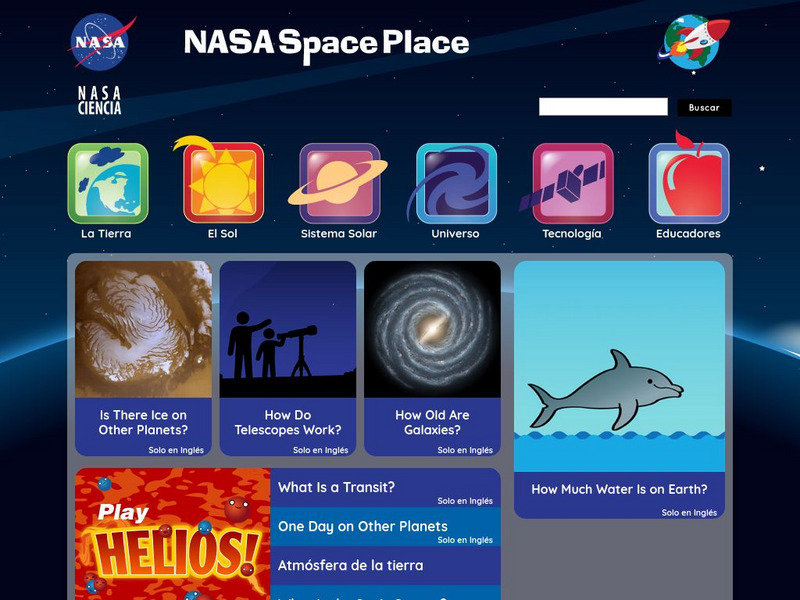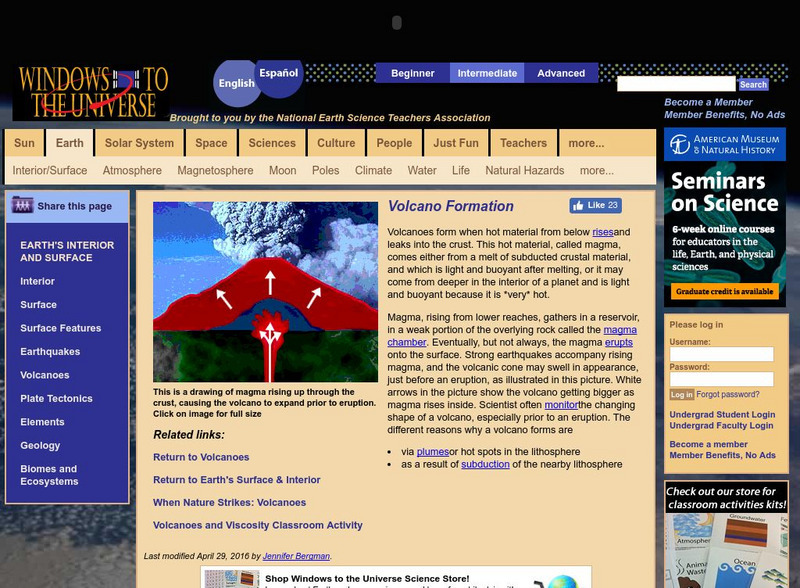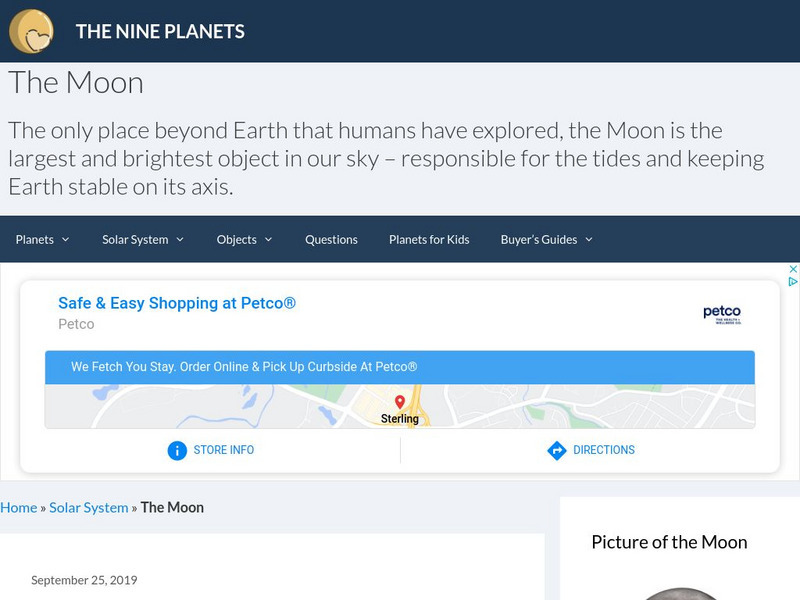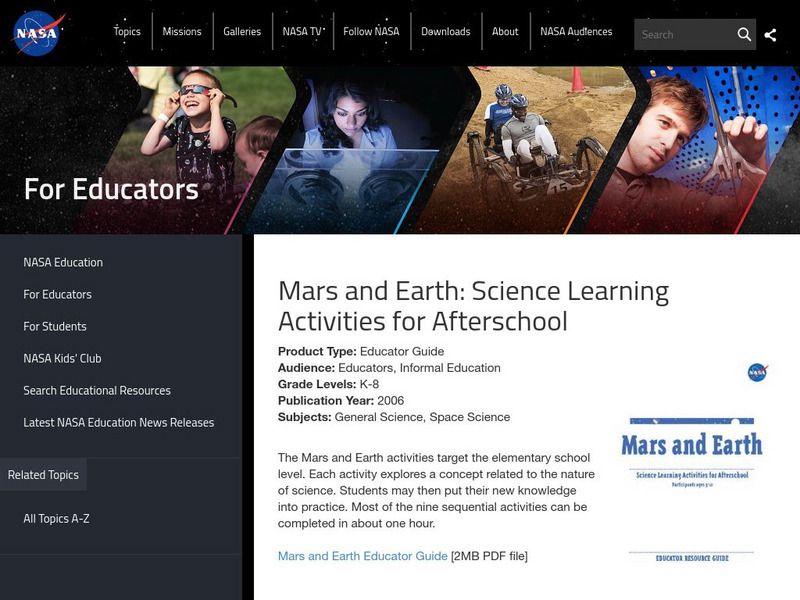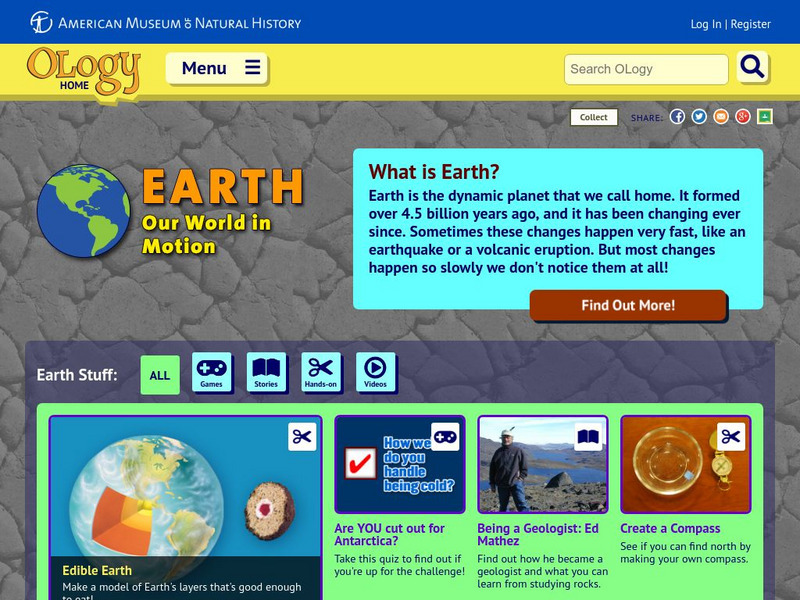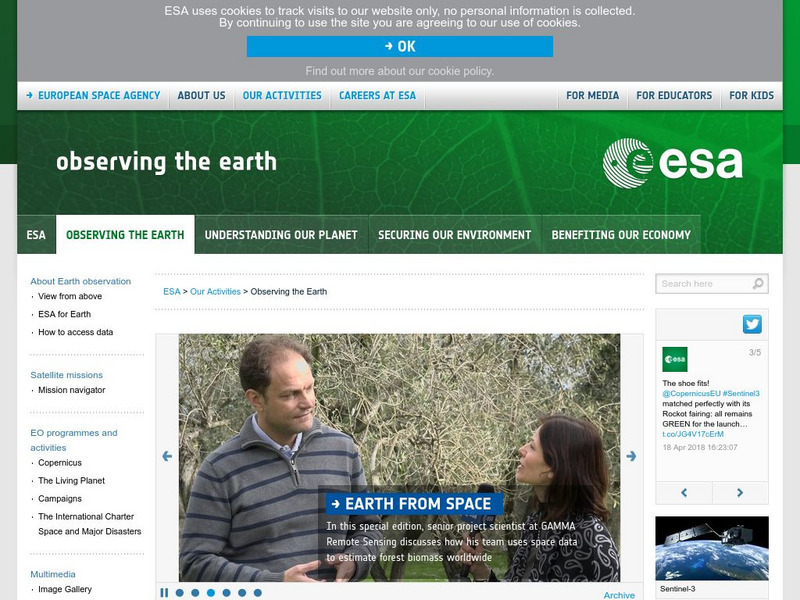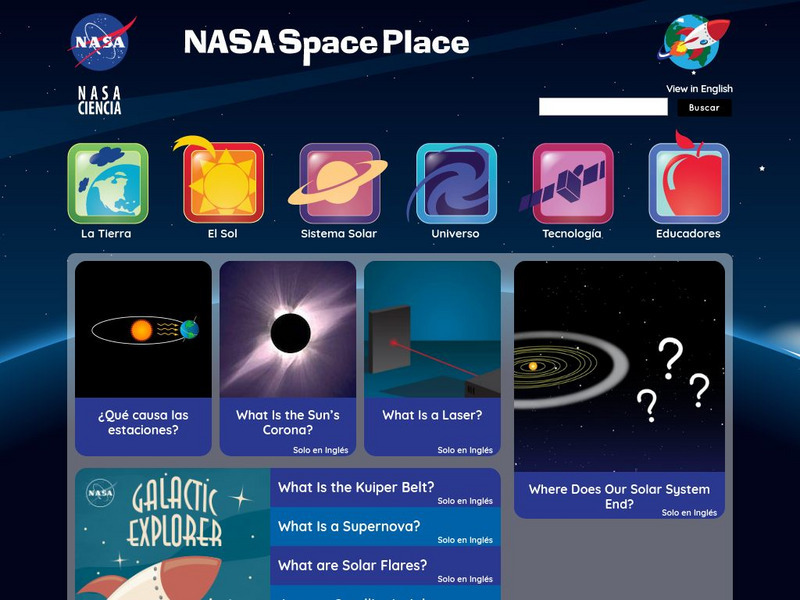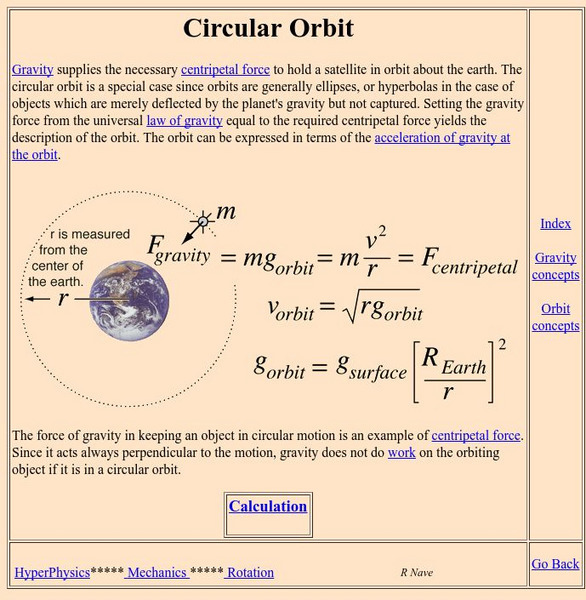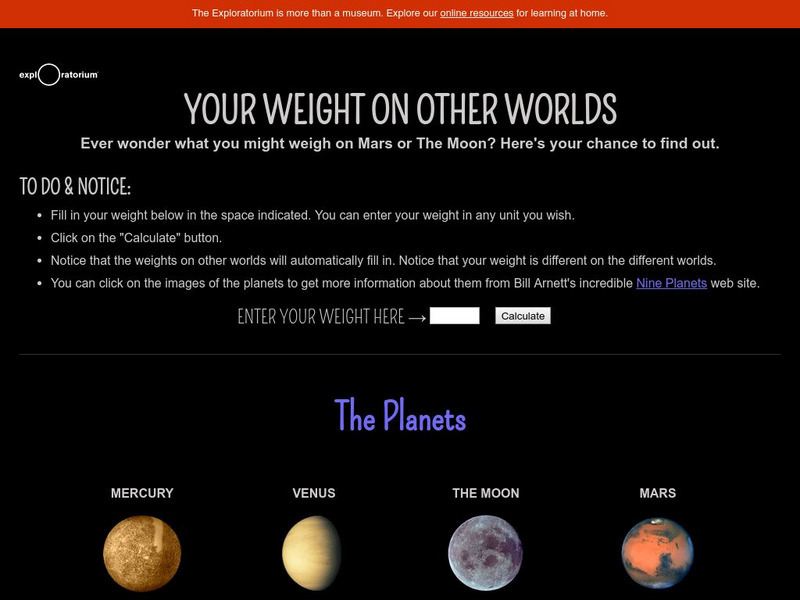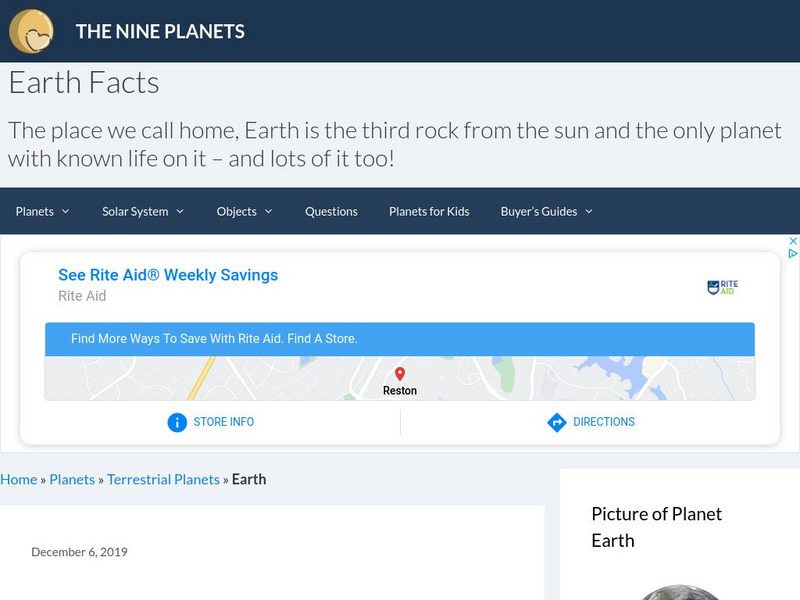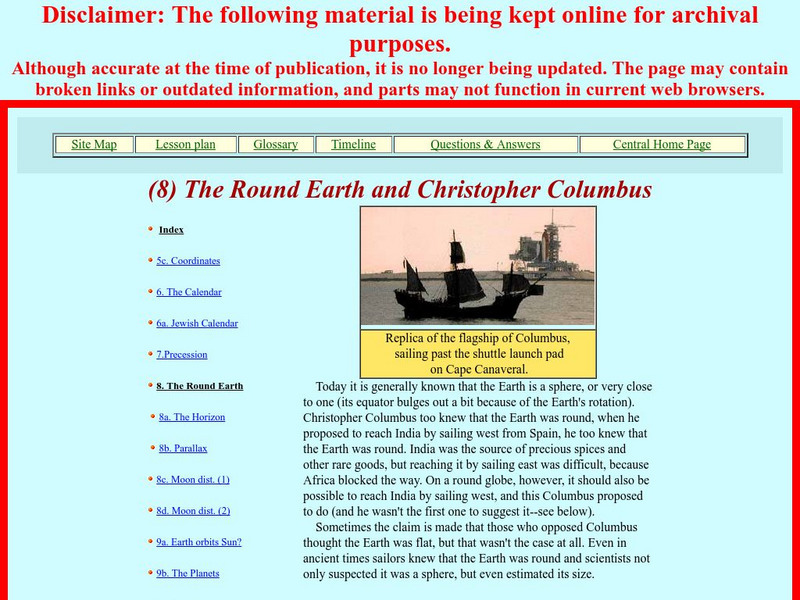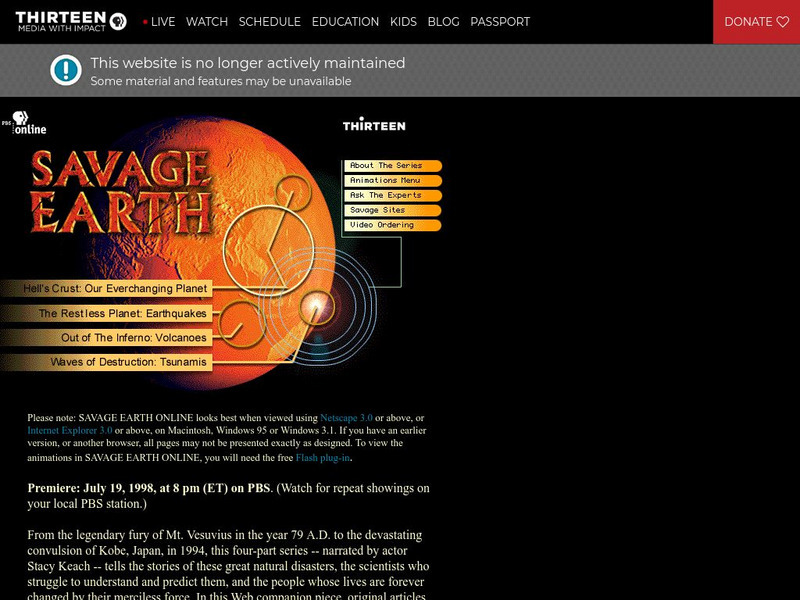Texas Education Agency
Texas Gateway: The Sun Is the Center of the Solar System
See what you know about the solar system by taking this brief interactive quiz and learning module.
NASA
Nasa: Image Science Center: Ask the Space Scientist
A NASA scientist, Dr. Sten Odenwald, answers many students' questions. Topics include planets, galaxies, black holes, the origin of the universe, and common misconceptions about space.
NASA
Nasa: Space Place
NASA offers games, animations, and projects to help kids explore earth, space, and technology.
National Earth Science Teachers Association
Windows to the Universe: Volcano Formation
Explanation of the factors that result in the formation of volcanoes, some basic but helpful animations and photographs.
Nine Planets
The Nine Planets: The Moon
Explore the mythology, structure, observational history, gravitational force, and orbit of Earth's Moon.
University Corporation for Atmospheric Research
Ucar: The Earth as a System
An overview of content about Earth and its atmosphere. The module was developed for middle school science teachers to provide background information for teaching the curriculum.
NASA
Nasa: Mars and Earth: Science Learning Activities for Afterschool
This set of activities teaches learners about the big picture of science using Mars as an example: how to collect data, use evidence, and look at models.
NASA
Nasa: The Space Place
Do you know what a solar eclipse is? Or how about a galaxy? Space Place has the answers to all your questions about space! Site includes information to explore about planets, satellites, moons, and much more. Also on the website are...
BBC
Bbc Schools: Ks2 Bitesize: Science: Physical Processes: Earth, Sun, and Moon
Help Sarah Jane and her team put the solar system's planets back in order. Following the activity, read more about the sun, the Earth, and its moon, and then take a quick quiz to check for understanding.
Crayola
Crayola: Extraterrestrials Visit Earth (Lesson Plan)
Your students will love wrapping up a solar system unit with this activity! Children make their own "Travel brochure," about earth, trying to encourage extraterrestrials to visit, by comparing our planet to theirs. This lesson plan also...
American Museum of Natural History
American Museum of Natural History: O Logy: Earth: Our World in Motion
This resource is a place for learning all about the Earth--the Earth's layers, its history, rocks and minerals, and interesting Earth science facts and discoveries. Explore, ask questions, find information, and meet American Museum of...
European Space Agency
European Space Agency: Observing the Earth
This resource provides information about the Earth, as well as satellite images and videos of what is taking place on the earth currently.
NASA
Nasa Space Place: El Space Place
NASA's space science site for kids - en Espanol. Features a wide range of activities, including games, projects, animations, and more. Also contains useful information on basic physics, chemistry, and other natural sciences, offering...
Annenberg Foundation
Annenberg Learner: Planet Earth
A series of seven instructional, hour-long videos presenting Earth-science topics such as plate tectonics, oceans, climate changes, natural resources, the Sun, and the future of our planet. Closed captioning option provided for each video.
Georgia State University
Georgia State University: Hyper Physics: Earth Orbits
An equation for the law of universal gravitation is stated. The weight equation (W=m*g) is related to the law. An interactive JavaScript form allows the user to practice determining the force of gravity and the acceleration of gravity...
Exploratorium
Exploratorium: Your Weight on Other Worlds
From the Exploratorium Museum. Includes an interactive feature in which a visitor enters their weight on earth and has their weight on other planets computed and displayed. Discusses the distinction between mass and weight and describes...
Nine Planets
The Eight Planets: Earth
Excellent Eight Planets site that provides a vast amount of information about planet Earth. Very comprehensive and complete site.
Other
University of Leicester: The Solar System
Resource explores the solar system, with an in depth discussion of each of the planets and their properties.
NASA
Nasa: From Stargazers to Starships: The Round Earth and Christopher Columbus
Despite popular myth, people of the 15th century actually realized that the earth was round. Some scientists had even estimated the size of the Earth. Here's an interesting explanation from a section of an online textbook on the...
US Geological Survey
U.s. Geological Survey: The Usgs and Science Education
"Explore things on, in, around and about the earth," with this web site dedicated to K-12 education from the United States Geological Survey. Homework help, science topics and fun learning games for students in Kindergarten through High...
NASA
Nasa: Radar Images
See amazing radar images of Earth taken from the space shuttle orbiting high above the surface. Categories include archeology, geology, volcanoes, and more! Visit the NASA/JPL Imaging Radar Program link for more images and information.
PBS
Wnet: Thirteen: Savage Earth Online
PBS produced "Savage Earth," a television series about volcanoes, earthquakes, and tsunamis. Contains extensive information with great graphics.
NASA
Nasa Space Science Data Archive: Galileo Project Information
This is the homepage of all of the archived information about and from the Galileo Mission. Included is data from the flybys of Venus, Earth, Moon, and Asteroids Gaspra and Ida, as well as the current data from Jupiter and its moons. See...
Enchanted Learning
Enchanted Learning: The Planets
This survey of the planets includes all the basics, size, mass, atmosphere, length of day, and the like. It features interactive activities and learning exercises and compares all of the planets in colorful tables.




